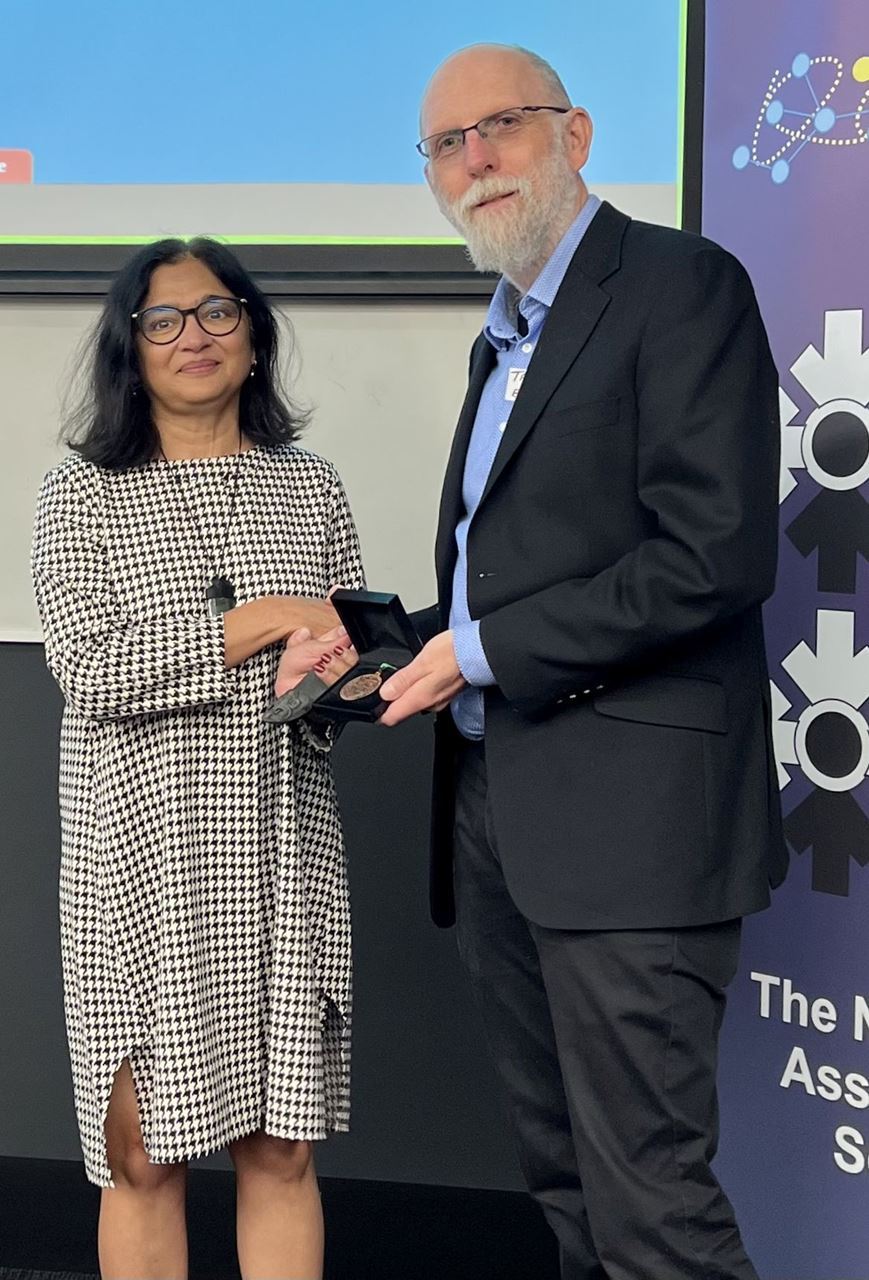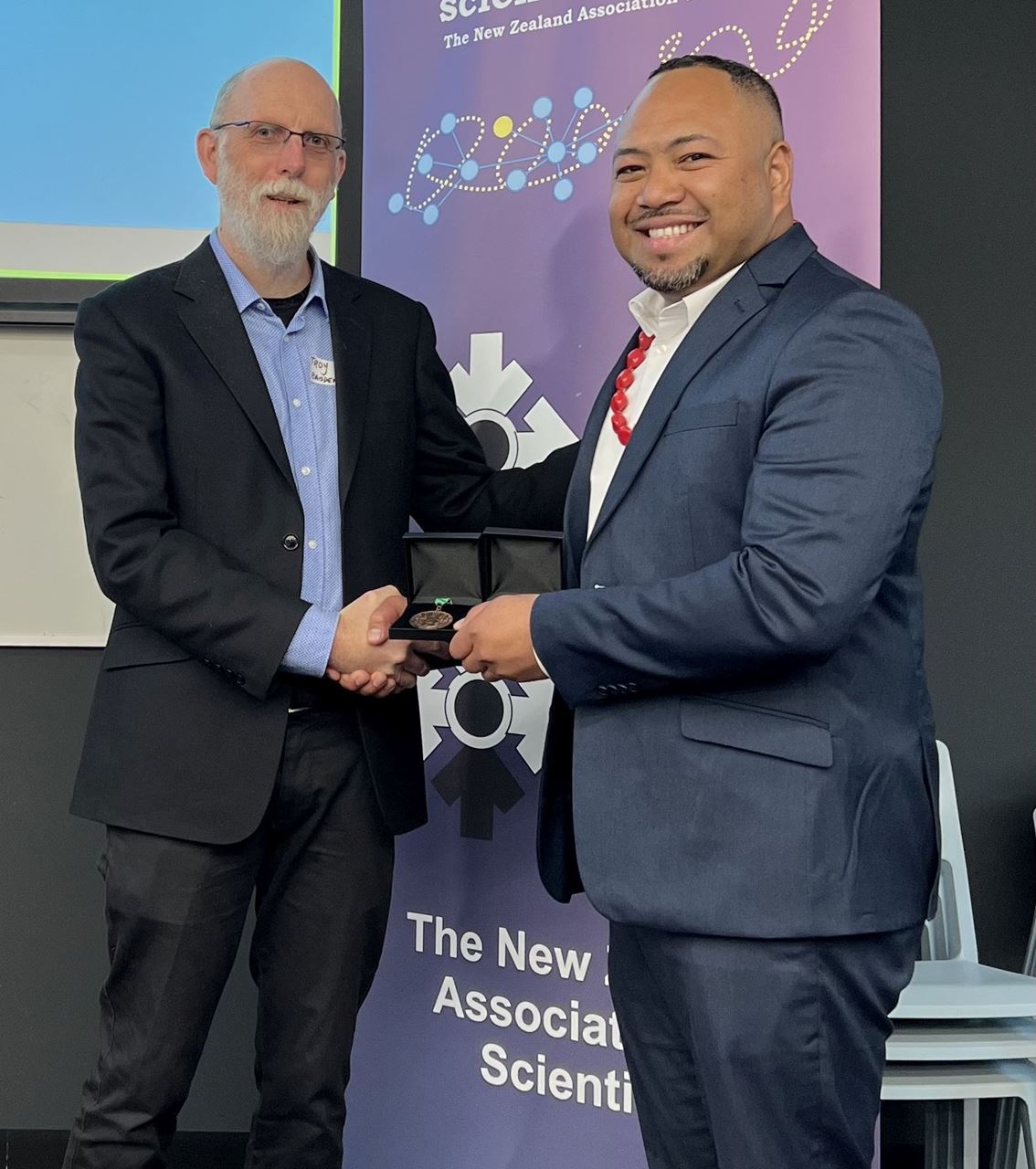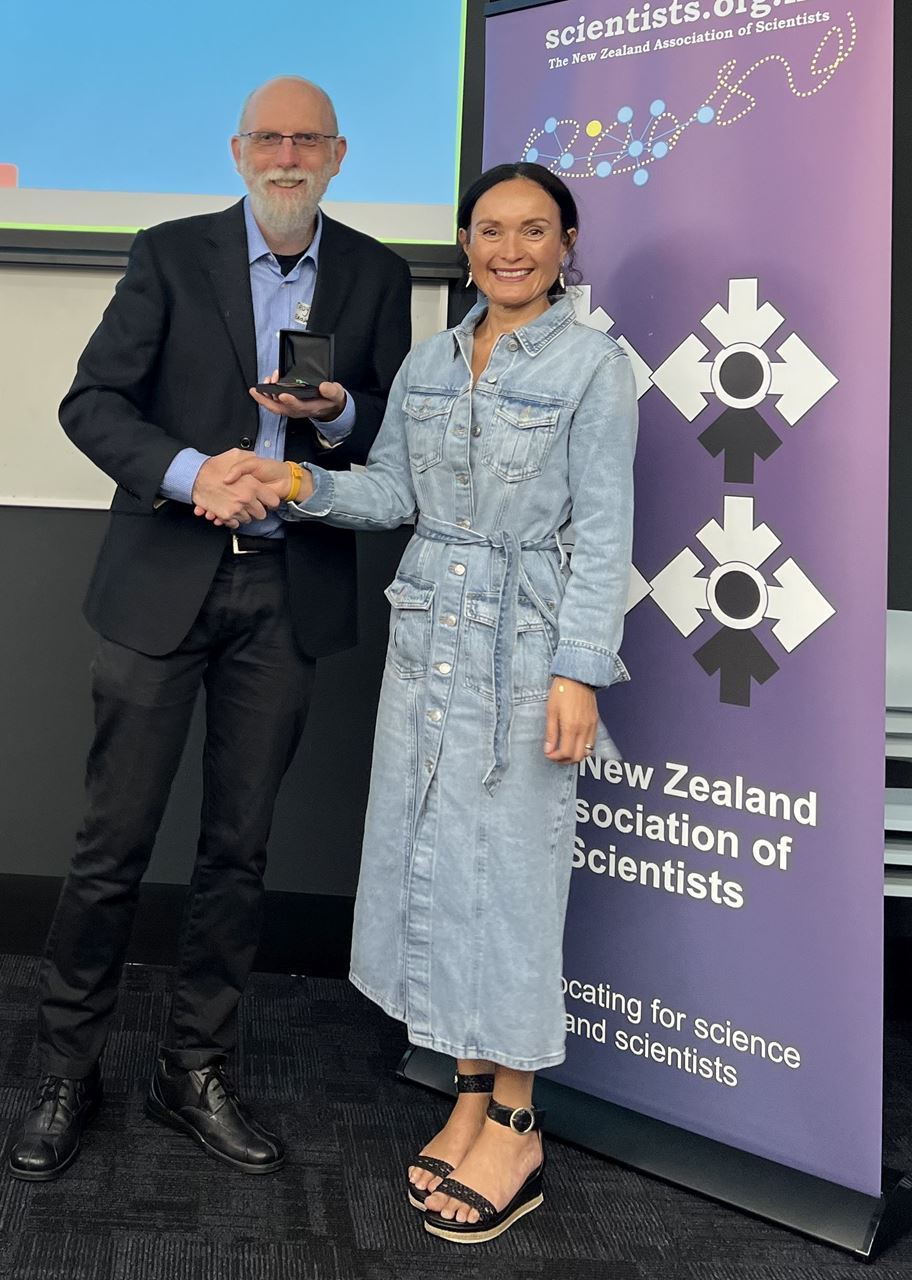The NZAS Medals for 2023 were presented on 14 November 2023, during the Association's Conference at the University of Auckland. Pictures of the ceremonies are below the citations. The full press release is also available.
Marsden Medal 2023
Professor Richie Poulton has been awarded the 2023 Marsden Medal for his lifetime of service to the study of human development, and for his ability to translate academic research in service of policies that support health and well-being across the life course. As Director of the Dunedin Multidisciplinary Health and Development study, Professor Poulton has led and facilitated ground-breaking research on the human life course that changed the way the world thinks about the long-lasting contribution of childhood disadvantage to a range of adult psychosocial and physical health outcomes, and about the role of early self-regulation in individuals’ health, wealth, and well-being. These insights support a long list of internationally relevant research articles and the recently-published The Origins of You: How Childhood Shapes Later Life. They paved the way for intervention studies to improve health and development from the earliest days of life for those in greatest need and contributed to policy improvement via government science advisory roles. Professor Poulton’s collaborative approach supported teams of researchers to grow, connect and thrive. Today, the Dunedin Multidisciplinary Health and Development study is recognised globally for its approach and impact, thanks to the high-quality longitudinal data its teams have collected. Long-term experiments and time-series data are hard-won and challenging to sustain, yet in all areas of research endeavour, looking backward is often what allows us to move forward. Through his commitment to the longitudinal approach and focus on the importance of a good start in life, Professor Poulton sets an important example for us all. His work has literally changed the world.
NB: Professor Poulton sadly passed away between the judging decision and the awards ceremony. Although the NZAS awards are not otherwise made posthumously, in this case his award was received on his family's behalf by his partner and colleague Dr Sandhya Ramrakha.
Hill Tinsley Medal 2023
This year’s Hill Tinsley Medal is awarded to Professor Tahu Kukutai (Ngāti Tiipa, Ngāti Māhanga, Ngāti Kinohaku, Te Aupōuri) from the University of Waikato. Professor Kukutai is a demographer, sociologist, data scientist, social scientist and world authority on Indigenous and Māori statistics. Her research has had a profound influence on the way statistics and data are viewed by Māori, particularly Māori governance and iwi entities as a useful and powerful tool for policy and development. Her publications, peer reviewed journal articles, book chapters and books demonstrate the systematic theory building that Professor Kukutai has undertaken. Her work has national and global impact and has been incorporated into international guidelines, domestic policy, and tribal planning and practice. She has published widely and is an exceptional mentor and supervisor to the next generation of Māori and indigenous early-career researchers. She is a Fellow of the Royal Society Te Apārangi, a Life Member of the Population Association of New Zealand and one of 19 Global Leaders of digital human rights. Based at Te Ngira Institute for Population Research at the University of Waikato, Professor Kukutai is a Co-Director of Ngā Pae o te Māramatanga Centre of Research Excellence.
Shorland Medal 2023
The 2023 Shorland medal is awarded to the AgResearch Agricultural Greenhouse Gas Inventory Development Team (Dr Cecile de Klein, Principal Scientist, Invermay, AgResearch; Dr Tony van der Weerden, Senior Scientist, Invermay, AgResearch; Dr Jiafa Luo, Principal Scientist, Ruakura, AgResearch; Dr Stefan Muetzel, Senior Scientist, Palmerston North, AgResearch; Dr Arjan Jonker, Senior Scientist, Palmerston North, AgResearch). This team has led the development of country-specific emission factors to improve the accuracy of NZs agricultural greenhouse gas (GHG) emissions estimates. The key goal has been to establish a comprehensive dataset and develop emission factors specific to NZs grazed pasture systems for meaningful mitigation strategies. This was critically important because the default values for assessing national emission values used by the Intergovernmental Panel on Climate Change were based on Northern Hemisphere research, where farming systems are quite different. Furthermore, methane and nitrous oxide from agriculture make up about half of NZs GHG emissions compared to about only 10% in other developed countries. The Team has developed more accurate methodologies to monitor and report emissions that have resulted in significant reductions in NZs former agricultural GHG emission estimates. The estimated nitrous oxide emissions have been more than halved and those of methane reduced by about one third. The NZ GHG Inventory measures NZs progress against obligations under the United Nations Framework Convention on Climate Change and the Kyoto Protocol and is the official basis for measuring NZs progress towards its international emissions reduction targets. The inventory is an integral part of the Government’s commitment to reducing climate change, including the development of targets proposed in the Zero Carbon Act and by the Climate Change Commission.
Cranwell Medal 2022
This year’s Cranwell medal is awarded to Dr Natalie Netzler (Ngāti Ruanui, Ngāti Hāuā) and Chris Puli’uvea, early career researchers who stepped up when they saw a need for clear, culturally appropriate communication to support Māori and Pacific communities during the COVID-19 pandemic. From mid-2021, the virologist and immunologist teamed up to raise awareness and health literacy about COVID-19 vaccination within their own Māori and Pacific communities, engaging with Pacific language media, delivering hui/fono and attending vaccination drive events. The duo's educational videos were presented in multiple languages – including te reo Māori, Tongan and Samoan – for the public and frontline healthcare workers to support informed decision-making on vaccination. It was particularly impressive that Natalie and Chris did this alongside their regular duties as early career scientists, showing impressive initiative and dedication to this kaupapa. By making themselves available to speak directly with their communities and answer questions through a kōrero/talanoa approach they have likely formed lasting and meaningful connections and will be well placed to continue this important work as their careers progress. This communication effort was particularly impressive for the clarity of its goals and the ways in which the activities were shaped to deliver them, alongside its focus upon communities that are often not directly served by many science communication efforts.

Dr Sandhya Ramrakha accepts the Marsden Medal from Co-President Troy Baisden on behalf of Professor Richie Poulton.

Dr Jiafa Luo and Dr Stephen Muetzel accept the Shorland Medal from Co-President Troy Baisden on behalf of the AgResearch Agricultural Greenhouse Gas Inventory Development Team.

Chris Puli'ueva accepts the Cranwell medal from Co-President Troy Baisden on behalf of himself and Dr Natalie Netzler.

Professor Tahu Kukutai accepts the Hill Tinsley medal from Co-President Troy Baisden.
© 2022 NZAS | Disclaimer Sitemap |